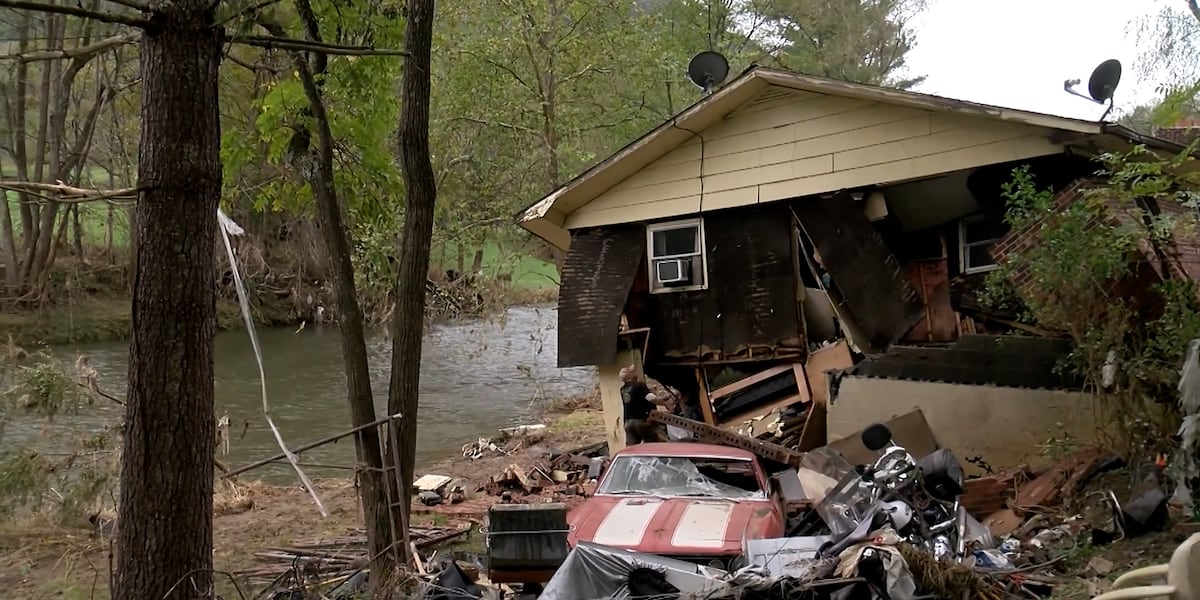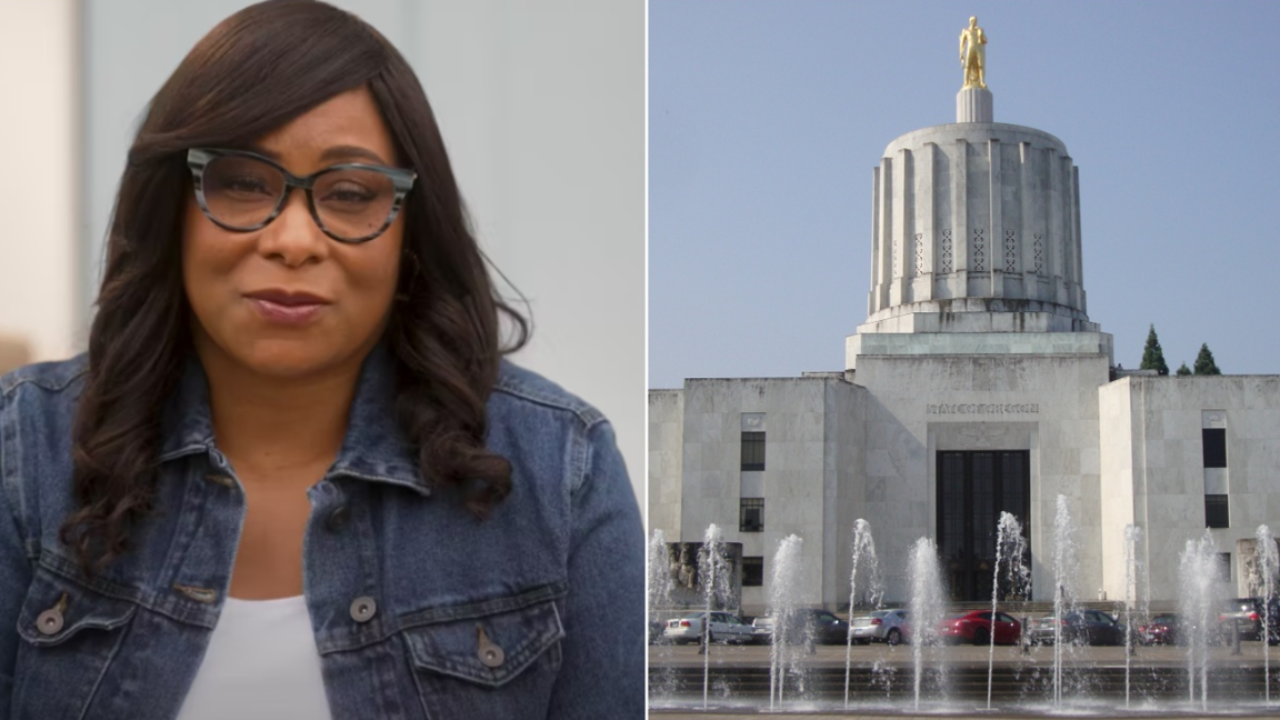North Carolina
Redistricting redux: GOP sees North Carolina pickups while Democrats eye New York

NEW YORK — If imitation is the sincerest form of flattery, Democrats’ plans to redraw House maps in some states show great respect and reverence for Republican redistricting tactics.
Redistricting is usually a once-a-decade process, completed after each census in years ending with zero. But with both parties trying to get an edge in what’s become a political knife fight for a narrowly divided House, new maps for the 2024 election cycle could make the difference in who holds the speaker’s gavel in the next Congress.
WILL HURD’S ‘POINTLESS’ ANTI-TRUMP CAMPAIGN ONLY HELPS EX-PRESIDENT, ALLIES AND CRITICS AGREE
The House effectively split 222-213 in Republicans’ favor, with soon-to-be-filled vacancies in a safely blue Rhode Island seat and a red one in Utah. This is why new rounds of redistricting are so important for both sides, though it’s a process that will have to move relatively quickly, with some primaries scheduled for less than a year away. After all, candidates — incumbents, challengers, and open-seat contenders — need to know which districts to run in.
Republican pickup opportunities
For Republicans, North Carolina is the biggest redistricting prize. The Tar Heel State gained a House seat after the 2020 census due to its fast population growth in the prior decade. North Carolina’s 14 House seats are divided evenly, 7-7 — for now.
That’s a reflection of the state’s diverse political complexion. North Carolina has voted for the Republican candidate in all but one presidential election since 1980; the one exception was in 2008 when a plurality of North Carolinians voted for Barack Obama. However, Democrats have held the governor’s office here for all but four years this century. And some of North Carolina’s fastest-growing areas are among the most Democratic-leaning. While rural areas have gone redder, cities and suburbs, growing much more quickly, particularly with professional-class workers in the Raleigh-Durham Research Triangle, are becoming bluer.
Still, Republicans dominate North Carolina’s legislature, with veto-proof majorities against Gov. Roy Cooper (D-NC). And state lawmakers are itching to redraw North Carolina’s maps for its House delegation. With backing from a state Supreme Court that now has five justices elected as Republicans to two Democrats, GOP state lawmakers pretty much have a free hand.
Depending on how aggressive state Republican lawmakers want to be in congressional redistricting, the maps could end up 12-2 in their party’s favor. Yet that would involve putting at risk several House Republican incumbents, who would see their conservative voting bases diluted. More likely, North Carolina’s House delegation will end up 11-3 in Republicans’ favor, or perhaps even 10-4, if that party plays it “safe.”
Whatever the change, several House Democrats from North Carolina could see their seats at risk, including Rep. Deborah Ross in the Raleigh and northern and western suburbs 2nd Congressional District, Rep. Kathy Manning in the Greensboro-area 6th District, Rep. Wiley Nickel in the southern Raleigh suburbs 13th District, and Rep. Jeff Jackson in the southern Charlotte and western suburbs 13th District.
State Republicans in Ohio may also try to redraw House maps in their party’s favor, though it won’t be as easy. The Buckeye State lost a House seat after the 2020 census due to slow population growth. Its current 15-member House delegation has 11 Republicans to four Democrats in a state that was long a political bellwether but now leans GOP. Former President Donald Trump in 2020 beat President Joe Biden in Ohio 53.27% to 45.24%, about the same margin of victory as four years prior against Democratic nominee Hillary Clinton.
Still, there’s only so far state Republicans can stretch the lines in an effort to create more GOP seats without endangering their own incumbents. They found out the hard way in 2022 when two House Democrats won competitive races — Rep. Marcy Kaptur in the Toledo and northwestern Ohio 9th District and Rep. Emilia Sykes in the Akron and Canton areas 13th District. Republicans may opt for caution in rejiggering House district lines rather than putting their own incumbents at risk.
House Democrats’ New York state of mind on redistricting
For House Democrats, the big redistricting prize is New York, a deep blue bastion where Biden crushed Queens native Trump 60.87% to 37.74% but where Democrats have a relatively narrow 15-11 edge over Republicans in House seats due to quirks and some bad breaks for the party ahead of the 2022 elections.
New York, too, lost a House seat after the 2020 census. State Democrats in Albany, with wide majorities, tried to divvy up the Empire State’s House districts 22-4 in their party’s favor. But a state court threw out the map, and the version that went into effect was much more favorable to Republicans.
Now, litigation in New York is already moving through the courts and could eventually restart the redistricting process in the coming months. Helping Democrats’ chance is the placement by Gov. Kathy Hochul (D-NY) of a more liberal justice who heads New York’s highest state court. In opening arguments recently, Democrats urged the new court to start the process over and let the state’s redistricting commission craft a new one.
If Democrats got their way in court due to the redistricting litigation, several House Republicans could be endangered. Starting with fabulist freshman Rep. George Santos in the northern Nassau County 3rd District, the congressman from Long Island faces a House Ethics Committee investigation over lies about his background, including education and work experience. Santos is a persistent target of House Democratic expulsion efforts. Several candidates are running in both the Republican primary and for the Democratic nomination.
Further House Democratic redistricting targets include GOP Reps. Anthony D’Esposito in the southern Nassau County 4th District and Mike Lawler in the Lower Hudson Valley, among others, though the extent of GOP House vulnerabilities won’t be known until, and if, new congressional maps are enacted.
Wisconsin also presents an opportunity for Democrats in redistricting. Republicans hold a 6-2 House delegation edge in the highly competitive Badger State, but liberals won a majority on the state Supreme Court last spring, and Janet Protasiewicz, an incoming justice, tips the balance in their favor to redraw the maps. Democrats see the appeal to the courts as their best chance of dislodging GOP majorities at both the state and federal levels.
Perhaps the biggest redistricting surprises for Democrats came from an institution now reviled by many liberals: the U.S. Supreme Court. With its 6-3 conservative majority, Democrats have made villains out of Justices Clarence Thomas and Samuel Alito over travel expenses paid for by outside interests while blasting the jurisprudence of all six justices appointed by Republican presidents.
Yet the high court of late has twice ruled in Democrats’ favor on political map drawing. The Supreme Court on June 26 dismissed Louisiana’s bid to prevent the state’s voting map from being redrawn over allegations that it unlawfully diluted the power of black voters.
The justices issued a brief unsigned order that was expected after the ruling on June 8 that relied on the landmark Voting Rights Act in a similar case regarding redistricting in Alabama.
The court order stated that the case should be resolved in lower courts “in advance of the 2024 congressional elections in Louisiana.”
CLICK HERE TO READ MORE FROM THE WASHINGTON EXAMINER
In the Alabama case, the justices upheld a lower court ruling that said the Republican-drawn map in that state discriminated against black voters by making it harder for them to vote for candidates of their liking.
The political bottom line is that Democrats could gain two House seats in Alabama and Louisiana, though much still depends on who ends up drawing the maps, and two Democratic House pickups aren’t guaranteed.

North Carolina
Harris visits Hurricane Helene-ravaged North Carolina as Trump makes a triumphant return to Butler
)
While former US President Donald Trump conducted a rally in Butler, Pennsylvania, the site where an assassin’s bullet almost killed him, US Vice President Kamala Harris visited North Carolina, the second state destroyed by Hurricane Helene
read more
US Vice President Kamala Harris took her second trip in four days to a state ravaged by Hurricane Helene. On Saturday, the Democratic presidential nominee met victims and first responders in North Carolina as US President Joe Biden’s administration tries to combat criticisms and claims that their response to the storm is too anaemic.
Harris paid a trip to a North Carolina Air National Guard base at Charlotte’s airport, where she received a briefing alongside a phalanx of state elected officials. The guard has been responsible for lifting more than 100,000 pounds of food to parts of the state most heavily affected by Hurricane Helene.
Today, I announced that the Biden-Harris Administration will provide $100 million to repair I-40, a major artery for western North Carolina.
We will stand with North Carolina and every state affected by this storm for the long haul. pic.twitter.com/tk8qXoUI9S
— Vice President Kamala Harris (@VP) October 6, 2024
“The work that’s happening here that is so positively impacting so many people is really an example of the best we can do when we bring resources together at the federal, state and local level — and tap into the kind of collegiality that produces results,” she said during the briefing, T_he Washington Post_ reported.
Harris meets the storm-affected families
During the meeting, the vice president noted that she had spoken with many of the officials at the table earlier while the hurricane was wreaking havoc in the southeastern US states. “I think that these moments of crisis bring out some of the best of who we could be and who we are,” Harris continued.
The 59-year-old prosecutor-turned-politician also met a family who had to temporarily relocate from western North Carolina to Charlotte with their 6-month-old child, and another person who helped with “lifesaving recovery efforts during flooding,” according to the vice president’s office. In the past, hurricanes turned out to be a litmus test for different administrations, reflecting their competence or lack thereof in a crisis.
Last week, Trump attempted to paint Biden’s response to Hurricane Helene as “lackluster” without providing any evidence to support his claims. Helene made landfall Thursday and carved a path of destruction through six states, killing more than 200 people and is now touted as one of the deadliest storms in modern times.
Following the briefing to the vice president, North Carolina Governor Roy Cooper said on Saturday afternoon that at least 68 people were killed in the state due to the storm. On the same day, Harris announced that Mecklenburg County, which includes the state’s largest city of Charlotte, had been added to the federal disaster declaration.
The political side of it all
It is important to note that there is a political calculus behind Harris’s visit to storm-stricken states. The states of North Carolina and Georgia are battleground states coveted by both parties in a race that is essentially tied. While addressing a rally in Michigan, the former president falsely claimed that the government could not adequately fund the storm response because it had used Federal Emergency Management Agency money on migrants “who came into the country illegally.” He claimed the White House is missing a billion dollars that was used for migrants.
However, there is no concrete evidence that states that the Biden administration has used that money for the migrants. In reality, the Trump administration in 2019 told Congress that it was taking $271 million from Department of Homeland Security programs, including $155 million from the disaster fund, to pay for immigration detention space, The Washington Post reported.
While Harris was visiting North Carolina, the Republican presidential nominee addressed a rally in Butler, Pennsylvania, the same place where he witnessed an assassination attempt against him.
While addressing the rally, Trump pledged to never quit. “Exactly 12 weeks ago this evening, on this very ground, a cold-blooded assassin aimed to silence me,” the Republican candidate told tens of thousands of supporters after taking the stage behind bulletproof glass.
Calling the gunman a “vicious monster,” Trump vowed he would “never quit… never bend… never break” to cheers of “fight, fight, fight” from the crowd. The former president was joined by billionaire Elon Musk who said that Trump “must win to save democracy.”
With inputs from agencies.
North Carolina
LIVE: Harris visits North Carolina to survey Helene’s damage, provide update on relief
President Joe Biden tours Helene-damaged areas of Florida
President Joe Biden was in Florida Thursday to observe the damage left behind by Hurricane Helene.
WASHINGTON – Vice President Kamala Harris arrived in North Carolina on Saturday to survey the catastrophic damage wrought by Hurricane Helene and console communities amid ongoing recovery efforts.
“I’ve been seeing and hearing the stories from here in North Carolina about strangers who are helping each other out, giving people assistance in every way that they need, including shelter, food and friendship and fellowship,” Harris said during a briefing at the North Carolina Air National Guard, according to a White House pool report.
Harris, the 2024 Democratic presidential nominee, met with officials Saturday where she received updates on recovery efforts for the area and announced that Mecklenburg County, home to the battleground state’s largest city, Charlotte, had been added to the federal disaster declaration.
The vice president on her tour of the state is expected to meet with residents impacted by the Category 4 storm – which has killed more than 200 people and left thousands without power or drinkable water since it made landfall along Florida’s Big Bend region on Sept. 26. Harris is also scheduled to provide updates on the federal emergency response efforts in North Carolina and other states in the Southeast.
Her visit comes exactly one month ahead of the 2024 presidential election, in which she is locked in a tight race against former President Donald Trump. North Carolina is viewed as a pivotal swing state, and the speed and effectiveness of Biden administration’s response efforts could have ramifications on the race.
Trump has also visited disaster-struck regions in Georgia, Florida and North Carolina over the last few days.
Upon arriving to Charlotte Douglas International Airport, Harris was greeted on the tarmac by North Carolina Gov. Roy Cooper, Attorney General and gubernatorial hopeful Josh Stein, FEMA Administrator Deanne Criswell, Rep. Alma Adams, D-N.C., Rep. Jeff Jackson, D-N.C., and Charlotte Mayor Vi Lyles.
Catch up with the USA TODAY Network’s latest updates.
President Joe Biden urged members of Congress to replenish critical disaster relief programs that have run out of money, or that soon could run out.
In a Friday night letter to congressional leaders, Biden warned that the Small Business Administration’s disaster loan program is set to run out of funds in a matter of weeks. He also said the Federal Emergency Management Agency’s disaster relief funds could face a shortfall by the end of the year. Biden called on Congress to restore funding and provide FEMA with additional resources.
Republican House Speaker Mike Johnson has suggested Congress can wait until after the election to pass Hurricane relief measures.
– Karissa Waddick
As search and rescue teams continue to examine stream beds and debris piles across North Carolina, Georgia, South Carolina and Tennessee, the toll of lives lost in Helene’s horrific flooding mounts daily. At least 214 people have died as a result of the storm. Hundreds are still missing and officials expect the number to rise.
But already Helene is the fourth deadliest landfalling hurricane in the mainland U.S. since 1950. It ranks behind Hurricane’s Katrina (2005), Audrey (1957 and Camille (1969).
– Dinah Voyles Pulver
Donald Trump is expected to hold a campaign rally in Butler, Pennsylvania on Saturday. The former president will return to the venue where he first survived an assassination attempt in July.
Trump held a campaign rally in Fayetteville, North Carolina on Friday evening.
– Karissa Waddick
Disaster politics are a staple of presidential elections, and this year is no different. With just a month to go until the election, Donald Trump has sought to make Biden and Harris’ Hurricane Helene a focus of the campaign.
“There’s nobody that’s handled a hurricane or storm worse than what they’re doing right now,” Trump said to supporters Thursday night in Saginaw, Michigan.
Trump’s indictment has included falsehoods – he claimed that federal disaster money went to migrants and that Georgia GOP Gov. Brian Kemp had trouble reaching Biden, but neither were the case – and the 2024 Republican nominee for the White House has been accused of playing politics with disaster relief during his presidency.
– David Jackson
Kamala Harris pledged “long lasting” federal support to get residents and neighborhoods battered by flooding from Helene “back up and running” during a visit to Augusta, Georgia earlier this week.
“We’re here for the long haul,” Harris said.
The Biden administration has so far approved requests from Georgia, Florida and North Carolina for the federal government to fully cover the state and local costs of debris removal, search and rescue efforts, mass-feeding and other hurricane-related emergency response activities.
– Joey Garrison
North Carolina
North Carolina lawmakers erode building code for years before Helene hit

CHARLOTTE, N.C. (WBTV) – When Kim Wooten sees the devastating videos of Helene’s destruction, she thinks about her five years serving on the North Carolina Building Code Council.
Trickling streams in the mountains turned to raging rivers after the hurricane dumped record setting rain. The world has watched as flood waters wiped away roads, homes and entire neighborhoods.
Wooten thinks about the various building code updates that have been blocked or excluded. Codes that could have made some of the structures safer.
“It’s the General Assembly and the North Carolina Home Builders Association,” Wooten said. “Both of those entities have effectively blocked the ability of homebuyers to purchase a home that is built to modern standards, that has been inspected to meet modern standards, that is efficient and affordable.”
A WBTV Investigation is shining a light on how North Carolina lawmakers and lobbyists weakened the state’s building code for years before Hurricane Helene hit. The history reveals a pattern of bills sponsored by legislators who own construction companies, supported by a political action committee that has spent more than $4 million over four years on their preferred candidates.
Wooten, an electrical eningeer, has been vocal about the influence the NC Home Builders Association has had over the building code council and general assembly. She says the devestation in mountain communities provides yet another example.
“There have been a number of bills proposed over the years to address steep slope construction,” Wooten said. “All three of those were defeated.” She added that efforts from local communities to implement stronger slope construction regulation were also opposed and weakened.
State Representative Laura Budd tells WBTV it’s not just what’s about building codes that were blocked. Laws the legislature and NCHBA passed also have a major impact.
“What it does is it erodes the safety and security that’s supposed to be written into the building code,” Rep. Budd, a Democrat representing the Matthews area, said.
NC Home Builders Association bills impact FEMA funding
Budd opposed two bills recently pushed by the NCHBA, even though she’s an attorney practicing in construction litigation. She said most of her clients are general contractors, trade professionals and developers.
“Not a single, solitary one of them is in favor of this,” Budd said.
Republican legislators, backed by the NCHBA, filed House Bill 488 in 2023. The bill essentially blocks North Carolina from adopting newly updated residential codes until 2031. The International Code Council (ICC) introduces a new version of building codes every three years.
Governor Roy Cooper vetoed the bill, warning it could cause the state to lose FEMA funding, but the legislature overrode his veto. The governor’s office estimates North Carolina communities will miss out on $70 million in FEMA funds this year because of the NCHBA backed law. The funds are Building Resilient Infrastructure and Communities (BRIC) grants and are intended to help local governments reduce their hazard risk.
“They’re our federal tax dollars, and those federal tax dollars are going to other states to make their states more resilient to floods like waters,” Wooten said.
A spokesperson for the NC Home Builders Association wrote in an email “there has been this false narrative that the building code can only be changed every six years.” He claimed that the statutory process allows anyone to petition the Building Code Council to revise or amend the state building codes any time the Council meets (usually quarterly).
Regular council meetings are for individual code changes to specific sections rather than the adoption of new international standards. North Carolina recently updated its building code, meaning the code will be ten years out of date by the time the council can adopt new international standards again.
It’s not just the governor from an opposing political party raising concerns about how NCHBA efforts to change the code are costing homeowners.
When standards go down, insurance goes up
In 2021, the North Carolina State Fire Marshal’s Office opposed another NCHBA policy priority to change the period for revising the code from every three years to every six years. In a letter to the state building code council, the deputy state fire marshal wrote that changing to a six-year code cycle would negatively impact insurance ratings statewide and could decrease participation in the National Flood Insurance Program.
The letter also stated that “North Carolina will be “unable to compete” in the (FEMA) BRIC grant market…due to the weight assigned to the building code scoring criteria.”
The scoring criteria referenced is the Building Code Effectiveness Grading Schedule, used to assess the building codes in individual communities and how they’re enforced. A community’s grade can have a significant impact on homeowner and commercial insurance rates.
North Carolina’s BCEGS score decreased from 2015 to 2019, moving from Class 4 to Class 5 in both commercial and residential categories. North Carolina has a lower commercial ranking than South Carolina, and is tied in residential. Virginia scores higher in both categories.
The most recent ranking is from before North Carolina changed to a six-year code cycle. The impact that might have on the state’s score is still unknown.
Big donations and big impact
When the NCHBA prioritizes legislation, it often passes. Even when the Governor vetoes it, and Republicans lack the supermajority to override it.
“If you follow the money, you tend to find the answers to those questions,” Rep. Budd said.
WBTV analyzed the legislators who received the most campaign contributions from the North Carolina Home Builders Association PAC. Politicians also received contributions from the NCHBA’s Home Builders Education Fund, Inc. which spends money on radio ads, mailers and billboards supporting specific candidates.
Many of the legislators receiving the most financial support from NCHBA ended up being influential, even critical, on Senate Bill 116. The bill was a top legislative priority for home builder legislators and lobbyists in 2024.
“House Bill 488 nor Senate Bill 116 had any requirements that would impact health or safety for buildings in North Carolina,” an NCHBA spokesperson wrote in the email to WBTV. Instead, he said H488 paused the energy code until a future date.
One of the notable impacts of S116, according to Budd, was that it removed the requirement for an architect on the residential code council. State Representative Dean Arp, who has received a significant amount of campaign contributions from NCHBA, also spoke out against some of the code provisions in the legislation but voted for it anyway, saying it could be fixed in a subsequent bill.
The bill was sponsored by Republican State Senators Steve Jarvis, Joyce Krawiec, Tim Moffitt and Democrat Paul Lowe. Since 2020, NCHBA and its Education Fund have spent a combined $195,000 on the four candidates, with Jarvis ($76,000) and Krawiec ($68,000) leading the pack.
But the legislation led to disagreements, even among the NCHBA backed legislators supporting it. A committee of house and senate members was formed to work out their differences. The appointees named read like a list of the Home Builders Association’s favorite legislators to contribute to.
(R) Rep. Jeff Zenger – $115,700
(R) Rep. Mark Brody – $75,000
(R) Sen. Steve Jarvis – $76,000
(R) Sen. Joyce Krawiec – $68,000
(R) Rep. Dean Arp – $31,500
(R) Sen. Bill Rabon – $32,200
(R) Rep. Matthew Winslow – $10,400
Zenger, Brody, Jarvis and Winslow all have their own construction companies according to an NCHBA web post from 2021 titled “Record Number of Builders Sworn in as Legislators.” Brody sponsored House Bill 488 along with Rep Tricia Cotham.
After the bill was passed, then vetoed by the governor, the NCGA leaders organized a vote to override the veto. Democrats had a major role to play in passing the legislation in the House. With eight republicans absent, the supermajority needed for the override was no obstacle as six legislators, five who have received donations from NCHBA or its Education Fund, crossed the aisle to vote for the bill.
(D) Rep. Carla Cunningham – $51,600
(D) Rep. Michael Wray – $22,500
(D) Rep. Cecil Brockman – $18,100
(D) Rep. Shelly Willingham – $13,000
(D) Rep. Nasif Majeed – $2,200
The same group of lawmakers voted to override the veto of H488 in 2023.
The latest electioneering disclosure form from the Home Builders Education Fund was filed in March. It shows money spent on radio advertising for three candidates. $12,500 was designated for Rep. Cunningham and $9,500 for Rep. Brockman.
‘Do voters want a safe home?’
Wooten says North Carolinians are paying the price for the donations and decisions from the North Carolina General Assembly. Whether it’s insurance premiums, FEMA grants or flood mitigation.
“I’m hopeful that they (NCGA) will look at this recent disaster and it will cause a complete paradigm shift,” Wooten said.
She painted an alternative future though, put forward by the NCHBA and state lawmakers. Structures rebuilt in floodplains, on steep slopes, relaxed permit requirements and privatized inspections, all in the name of helping devastated communities recover and rebuild
“I am quite afraid that there will be a rush to rebuild that will end up costing people their lives and their biggest single investment in their lifetimes – their home,” Wooten said.
Wooten said no one is paying attention to these code changes because they’re boring. Budd called the slow and steady filing of bills aimed at changing the code “death by a thousand cuts.”
But with more than $4.3 million spent by the NCBHA on candidates since 2020, Budd says the small legislative victories are part of a bigger battle for profit by some of the larger home building companies.
“And it’s at the expense of North Carolinians.”
If there’s ever a time when homeowners would pay attention to the building code, and all the money spent trying to change it, it’s when they’re forced to rebuild their home.
“I think it’s up to the voters. Do voters want a safe home?” Wooten said.
“Do they want a home that won’t blow away in a hurricane, that will stay anchored during a flood? That’s up for voters to say.”
Copyright 2024 WBTV. All rights reserved.
-
/cdn.vox-cdn.com/uploads/chorus_asset/file/25439572/VRG_TEC_Textless.jpg)
/cdn.vox-cdn.com/uploads/chorus_asset/file/25439572/VRG_TEC_Textless.jpg) Technology3 days ago
Technology3 days agoCharter will offer Peacock for free with some cable subscriptions next year
-

 World3 days ago
World3 days agoUkrainian stronghold Vuhledar falls to Russian offensive after two years of bombardment
-

 World3 days ago
World3 days agoWikiLeaks’ Julian Assange says he pleaded ‘guilty to journalism’ in order to be freed
-

 Technology2 days ago
Technology2 days agoBeware of fraudsters posing as government officials trying to steal your cash
-

 Virginia4 days ago
Virginia4 days agoStatus for Daniels and Green still uncertain for this week against Virginia Tech; Reuben done for season
-

 Sports1 day ago
Sports1 day agoFreddie Freeman says his ankle sprain is worst injury he's ever tried to play through
-

 News18 hours ago
News18 hours agoLebanon says 50 medics killed in past three days as Israel extends its bombardment
-

 Health17 hours ago
Health17 hours agoHealth, happiness and helping others are vital parts of free and responsible society, Founding Fathers taught















